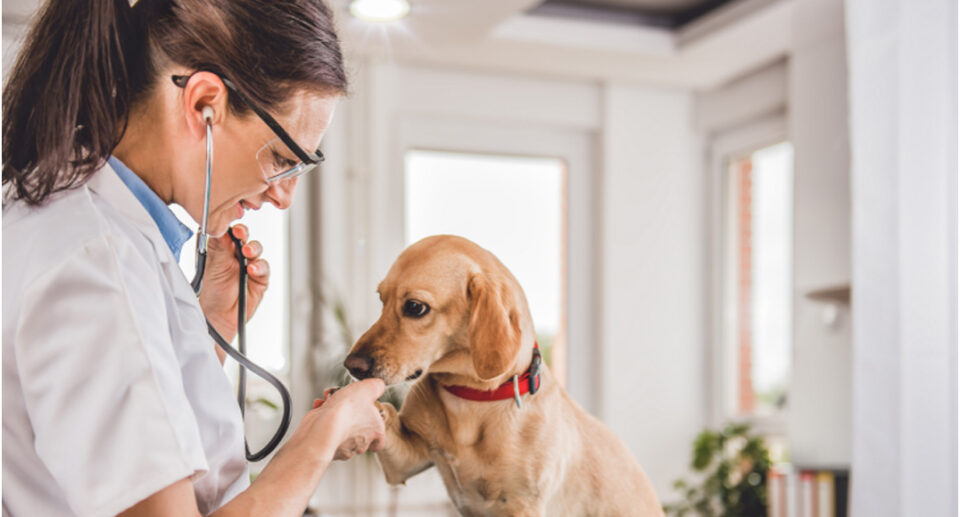Parvovirus Symptoms in Dogs

Signs & symptoms of parvovirus in dogs
Dogs with parvovirus may vomit and have bloody diarrhea with abdominal pain. Often the diarrhea has an unusually offensive odor caused by blood in the stool. With parvo, intestinal bleeding occurs in the small intestine so that the blood is partially digested and passes out as black, tarry feces (melena).
Dogs with parvovirus become thin and weak. They are dehydrated and the skin stays “tented” when pinched rather than falling back into place. Tenting is a classic sign of dehydration. The gums in the mouth are tacky rather than moist, and the eyes may appear sunken.
Bacteria growing in the blood is called septicemia. Septicemia is caused when bacteria in the intestines travel through the intestinal wall and move directly into the blood. Some dogs become dehydrated and septicemic so rapidly they die before diarrhea occurs. This is because dogs with septicemia have high fevers and may go into shock.
Some dogs with parvovirus will have only mild infections and few signs of infection. It’s possible to have some puppies in a litter with mild infections and other puppies with severe infections.
- Vomiting
- Diarrhea
- Abdominal pain
- Offensive stool odor caused by blood
- Intestinal bleeding
- Rapid weight loss
- Weakness
- Skin tenting
- Tacky gums
- Sunken eyes
- Death (if septicemia is present)
Diagnosis of parvovirus in dogs
Parvovirus in dogs is diagnosed by physical signs, blood tests, and stool tests. The most common physical sign is bloody diarrhea. This diarrhea has a distinctly foul odor.
Stool tests can confirm the presence of parvovirus in the feces. Puppies with parvovirus have severe diarrhea; the stool has so much fluid in it that the concentration of virus is too small to detect. This gives a false negative result.
The blood test used to diagnose parvo, called a parvo antibody titer, shows if your puppy’s antibodies are fighting the parvo infection. The level of antibodies is called a titer.
There are 3 strains of parvovirus, 2a, 2b and 2c, up until recently tests were only able to detect the 2a and 2b strands. Fortunately, with the lastest advances in testing, doctors are now able to detect all three strains of parvo. The test is highly accurate in both specificity and sensitivity, and is performed by taking stool samples.
If a dog has died from an intestinal infection, your veterinarian can send samples of the intestine to a pathologist to identify parvovirus in the intestine.





